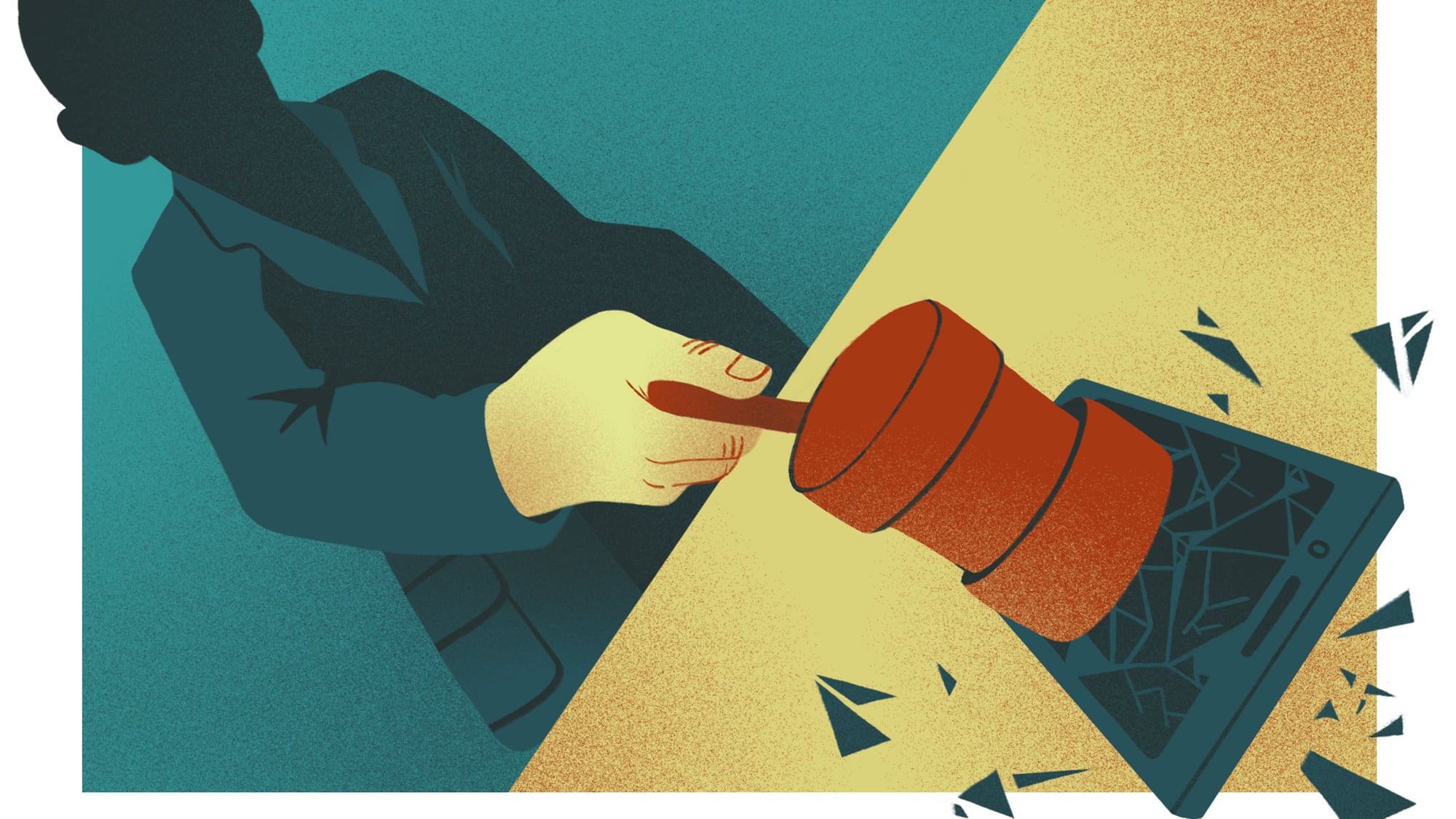A 50-second exchange during a legislative hearing earlier this year has led to simmering, behind-the-scenes tensions between the Oregon Lottery and legislators—and may determine the future of online sports betting in the state.
"There needs to be accountability," says Rep. Paul Evans (D-Monmouth). Evans is part of a bipartisan group of lawmakers who has expressed concern that the lottery's new sports betting app may cause widespread gambling disorders without providing much financial benefit to the state.
At issue: Can legislators limit the Oregon Lottery's ability to offer app-based betting, like Scoreboard, the phone-based product the lottery introduced last month?
The answer matters to the agency that is Oregon's second-largest source of discretionary revenue after personal income taxes. Scoreboard is the lottery's first big new initiative in more than a decade.
Lottery officials told lawmakers the agency has the constitutional authority to decide which games are offered—without the need for voter or legislative approval.
But armed with a new, previously unreported legal opinion by Legislative Counsel, lawmakers now say they have the authority to contest the Lottery's decision to move forward with Scoreboard unilaterally.
"You asked whether the Legislative Assembly may place limits on the operations of the Oregon State Lottery Commission and the Oregon State Lottery, particularly with respect to the introduction of betting via mobile platforms," reads a Nov. 6 memo from Legislative Counsel Dexter Johnson. "We think a court would likely uphold legislative restrictions on the use of mobile platforms for lottery gaming."
The power struggle could determine the fate of sports betting in the state—and the future of online lottery offerings.
The Oregon Lottery launched Scoreboard earlier this fall after multiple delays.
The lottery's decision to offer online gambling has proven controversial because experts contend easier access means more problems for bettors with gambling addictions. At the same time, the sports betting offers a limited upside: Although the agency projects Oregonians will place $1.6 billion in bets on Scoreboard over the next three years, the state will net only $37 million of that sum. That's a margin of 2.3 percent—far less than the lottery earns on other games.
At the end of a Feb. 20 hearing before the House Committee on Business and Labor, Evans asked if there was a need for legislation to allow the lottery to start online sports gambling.
The response?
"We have the authority to do it now," said Oregon Lottery director Barry Pack.
"So the only authority we would have is to try to block it, as opposed to make it happen?" Evans replied.
"I'm not sure, because of the constitutional authorities that are provided to the lottery commission that you'd be able to do much of that," Pack responded.
An even "hmm" was Evan's only response at the time. He subsequently solicited the Legislative Counsel opinion.
Pack was unavailable for comment, but lottery spokesman Matt Shelby notes that Johnson, the legislative counsel, advises the Legislature, not the lottery. Shelby says he agrees with the memo's analysis that any opinion is "speculative," since it has not been tested in the courts.
"We've been transparent about our plans, dating back to early 2018," Shelby tells WW. "Our plans to offer sports on a mobile platform were common knowledge when the Legislature voted to direct proceeds from the game to the [Public Employee Retirement Systems'] Employer Incentive Fund."
Shelby refers to a little-debated provision of Senate Bill 1049, which earlier this year made modest cuts to public employees' retirement benefits.
The bill included a provision that net proceeds from sports betting go to reducing the state's pension deficit. That stratagem solidified Scoreboard without any discussion of how much revenue or how many new problem gamblers the app might deliver.
Evans says there's been too little debate over Scoreboard's potential harms.
Rep. Daniel Bonham (R-The Dalles) pushed Pack on online gambling at the earlier hearing in February.
"We can set limits about how much you can actually transact on a day, so that there is a little bit of a backstop," Pack said.
But since then, the lottery established a limit that Evans and other critics think is no limit at all: $250,000.
Evans says that's irresponsible. "I think that's absolute poppycock," he says. "Two hundred fifty thousand dollars is the price of a low-end home. I think that's a joke."
The limit has the attention of other legislators, too.
"That's way beyond what we should be letting people bet," says Sen. Chuck Riley (D-Hillsboro).
Lottery officials say Scoreboard is exceeding expectations: More than 30,000 players signed up in the first month, betting more than $13 million. The largest single bet so far is $10,000, and one player bet a total of $234,015, losing $12,750.
Lawmakers looking for oversight won't get help from Gov. Kate Brown, whose spokesman says the lottery is engaged in the necessary work of "modernizing to serve new players."
"While legislators have the prerogative to explore their authority with regards to gaming, the Oregon Lottery provides an important revenue stream for our state, funding a variety of key services," says Charles Boyle, Brown's spokesman.
Now Evans says he plans to introduce "a number of bills" in the long session in 2021.
"I do promise," Evans says, "we are going to work on ensuring that the director of an executive agency who may believe he is immune from legislative oversight will be oversighted in a way he never imagined."

